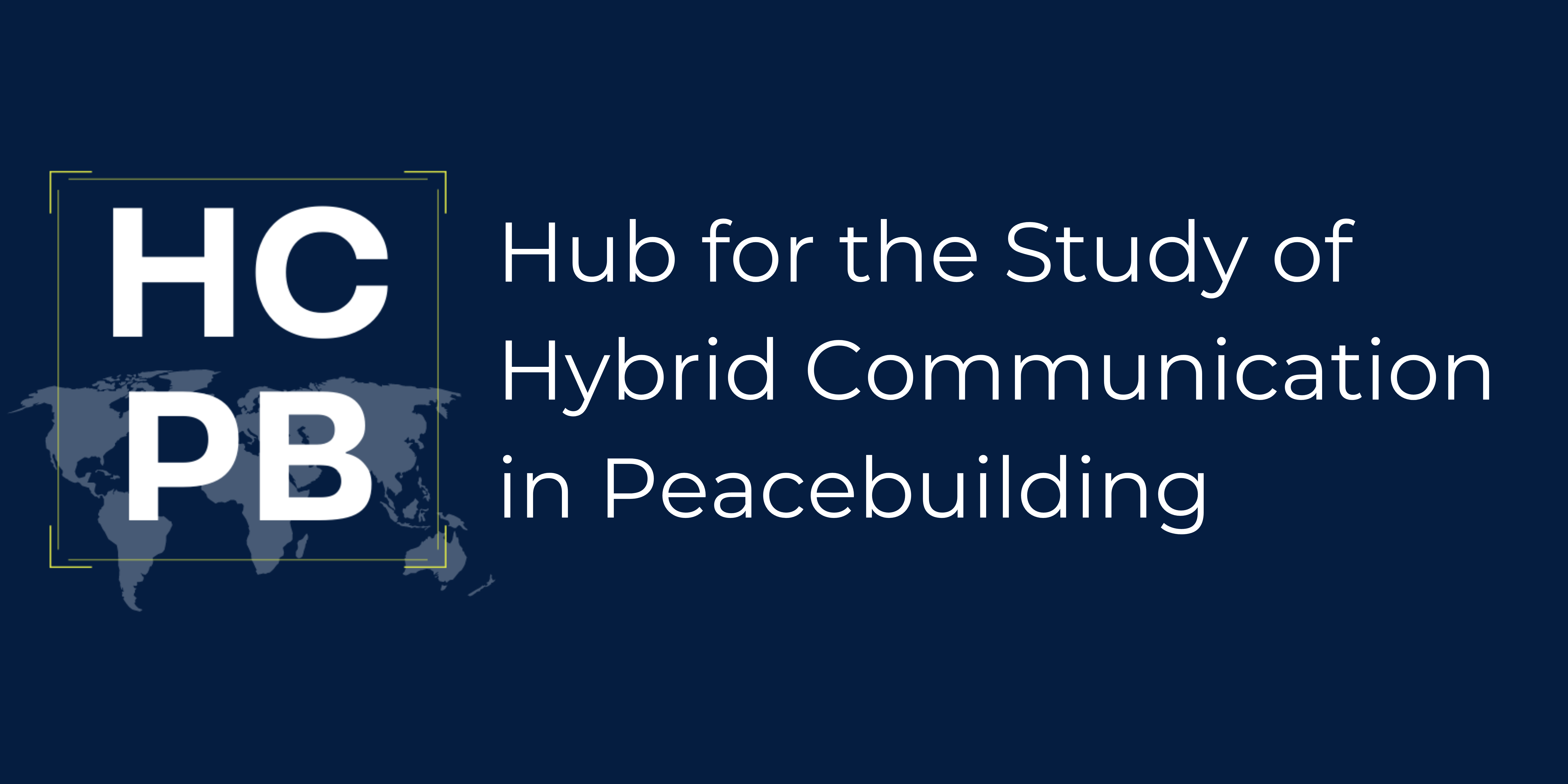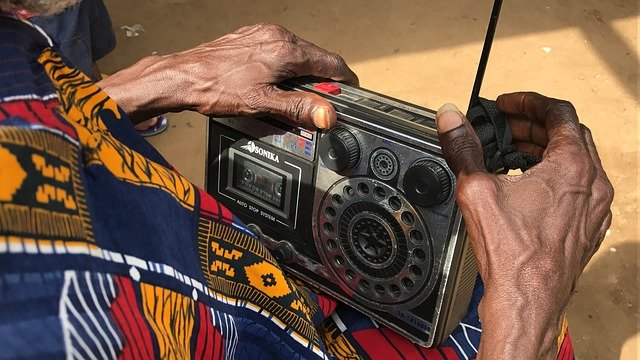By Lucas Mentken, MA International Public and Political Communication, JNL61004 Communication in Peacebuilding, University of Sheffield

In a small landlocked African country, radio has played an important role in healing post-civil war ethnic tension. Burundi, which gained independence from Belgian rule in 1962, has long been struggling with ethnic tensions between the majority group Hutus and the minority group Tutsis, just like its neighbour Rwanda. Although Tutsis settled in the Great Lakes region of Central Africa much later than the Hutus, they were generally wealthier and in control of the government and the military. In 1993, the assassination of Melchior Ndadaye, the first Hutu president, plunged the country into a civil war which claimed some 300,000 lives. The conflict officially ended with the implementation of the Arusha Peace Agreement in 2005. Studio Ijambo, Burundi’s first independent radio station, played a crucial role in the healing process throughout and after the civil war by providing a variety of news, current affairs and entertainment programmes. This post will explore some of its most popular initiatives to show how radio can help with post-civil war peacebuilding.
The early days
Alexis Sinduhije, one of Studio Ijambo’s founders, recalls the early days of the radio station in a talk to Harvard as a Shorenstein Fellow. On one afternoon in March 1995, the Burundian freelance journalist was approached by Bryan Rich, who worked for the American non-profit organization Search for Common Ground. The organization’s overarching goal is to end violent conflict around the world through ‘conflict transformation’. Rich wanted to create a radio station in Burundi with the goal of lessening tensions by reporting on the human side of the conflict. After further meetings and recruitments, Studio Ijambo was born with funding from the United States Agency for International Development (USAID). The radio station is only one of several peacebuilding projects launched by SFCG in Burundi, including the Women’s Peace Centre, the Great Lakes Policy Forum and an Integration Initiative.
Combating hate speech
Ijambo means “word” or “speech” and “speaking the truth” in the local language Kirundi. The original team was composed of five journalists and two technicians. Studio Ijambo sought to promote ethnic collaboration in a “rhythm of violence” (Sinduhije 1998), encouraged by the Tutsi army on one hand, and Hutu rebels on the other. As the station grew, Hutus and Tutsis continued working side by side, respecting basic rules of journalism and showing the common ground they shared to promote tolerance and coexistence. The ethnically diverse team of journalists produced accurate and unbiased reports to create an “independent forum of dialogue” (Hagos 2001) for its citizens.
Sinduhije (1998) paints a picture of the hostile media environment in which Studio Ijambo was launched. “The press vied with one another in calls for murder or to justify the resulting massacres, depending on which ethnic group they were defending,” he recalls. Burundi’s state-run radio station meanwhile became an “arena in which political parties and extremist factions would compete with each other ideologically through ‘news’”. As Burundi’s first independent source of news, Studio Ijambo was especially important in the fight against rumourmongering and misinformation, which started several massacres in the country’s past.
Engagement with the past
Studio Ijambo also innovated radio in Burundi by including people who were directly affected to share their experiences. “Pillars of Humanity”, popularly known as “Heroes”, was a programme which invited people who saved members of the other ethnic group during the height of the conflict between 1993 and 1996. As Hagos (2001) notes in his study, the response from participants in the study was particularly positive about the programme.
Furthermore, Studio Ijambo staff recall receiving phone calls or mail messages from members of the audience expressing regret for having participated in the killings themselves (Hagos 2001). Some listeners also recommended other “Heroes” whose stories should be told on future episodes. “Heroes” fulfilled an important function in the peacebuilding process by providing an engagement with the past rather than forgetting and leaving it behind, highlighting the positive stories of those who risked their own lives for members of the other ethnic group.
Bonding over a soap opera
Another programme which was immensely popular among Burundians was the soap opera Umubany iniwe Muryango (‘Our Neighbours, Ourselves’). The original story is set in the rural hills of Burundi and follows the daily struggles of two neighbouring families, one Hutu and one Tutsi. While the storyline makes it clear that the families are of different ethnicities, the listener never knows which is which, so both sides can be seen to be at fault (Rolt 2001). The story, composed of 20-minute-long episodes, was written by Marie-Louise Sibazuri, a Burundian playwright. The overall theme of the show is summarised in the following excerpt from one episode: “We all have something in common no matter what they say. Even day and night meet at sunrise and sunset.” (Rolt 2005)
As Walsh (2013) notes, ‘Our Neighbours, Ourselves’ aims to “hold a mirror up to Burundi’s ethnic divisions, and to shine a light on possible solutions”. An important element in this portrayal of conflict resolution is the use of Burundian humour, which “delights in word-play and burlesque characterisation highlights” (Astill 2003). Lena Slachmuijlder, director of Studio Ijambo, explains that the show is never moralistic, but highlights the foolishness of situations by making fun of people doing terrible things.
‘It’s never moralistic in terms of “he’s doing something wrong, so he should go to jail”. It’s more, “he’s doing something wrong, and what a fool he’s making of himself!”.’
Lena Slachmuijlder, director of Studio Ijambo (Astill 2003)
Conflict resolution through dialogue
It could therefore be argued that the show attempts to take the seriousness out of day-to-day conflicts by highlighting their humoristic aspects. In a country that has just gone through a trauma where thousands lost family members and friends, the soap opera lays the foundations for civil peace and mutual respect by portraying non-violent conflict solutions. It also provides a way of bringing up disagreement without resorting to violence in the first instance.
Dialogue plays a central role in the presentation of the show, with most scenes being “recounted in conversations among small groups” (Astill 2003). As the show revolves around gossip, village politics is a topic that is frequently discussed by the characters. Rose Marie Nzojibwama, one of the show’s stars, says that Burundians must realise that their commonality lies in misery and that they are all “pawns of politicians with big cars and smart houses” (Astill 2003). In this way, the show seeks to promote collective unity and advocates social justice by inspiring its listeners to hold the powerful and wealthy to account, no matter whether they are Hutus or Tutsis. The messaging seemed to work, as nearly all the respondents in Hagos´ (2001) study remembered messages from the soap opera relating to tolerance and coexistence. They also said that the show helped them change attitudes towards members of the other ethnic group.
Evaluating success
Programme evaluations and independent studies clearly show the popularity of ‘Our Neighbours, Ourselves’ in Burundi. Based on three surveys conducted since 1999, between 80% and 90% of the population listened to the drama regularly (Idris 2020, p.13). In addition to these figures, there are even tales of people “saving their precious batteries, or walking many miles to the nearest radio”, just to catch the episodes (Astill 2003). The success of the soap opera is further underlined by a 1999 evaluation which revealed that over 90% of Burundian radio listeners described the radio drama as “dealing with true-to-life issues in a way that brings Burundians together” (Slachmuijlder 2002). In 2000, 82% said that Studio Ijambo, which created the soap opera, helped reconciliation ‘a lot’ (Slachmuijlder 2002).
Overall, Studio Ijambo demonstrated the positive effects that an independent radio station can have in a post-civil war setting. The radio format in particular had great potential in the region, as 85% of the population in Burundi had access to radio at the time (Idris 2020). The station promoted tolerance through a variety of genres ranging from news to entertainment, while also inviting Burundians who were directly affected to tell their stories. Abiding by its slogan “Dialogue for the Future”, Studio Ijambo provided meaningful engagement with the past instead of leaving it behind, while also paving a way forward to a future of coexistence which is exemplified through programmes like ‘Our Neighbours, Ourselves’ and ‘Heroes’.
References
Astill, J., 2003. Burundi Heals Wounds With Touch Of Soap. [online] the Guardian. Available at: <https://www.theguardian.com/media/2003/may/04/broadcasting.internationalnews> [Accessed 16 January 2021].
Hagos, A., 2001. Media Intervention In Peacebuilding In Burundi – The Studio ijambo Experience And Impact. Available at: <https://citeseerx.ist.psu.edu/viewdoc/download?doi=10.1.1.459.7795&rep=rep1&type=pdf> [Accessed 9 January 2021].
Idris, I., 2020. Media/Communications On Peacebuilding/Social Cohesion/Changing Prevailing Narratives On Conflict. K4D helpdesk. Available at: < https://assets.publishing.service.gov.uk/media/5e9d7d7ed3bf7f031cfdbea7/781_Media_communications_for_peacebuilding_social_cohesion_changing_prevailing_narratives_on_conflict.pdf> [Accessed 17 January 2021].
Rolt, F., 2001. “Our neighbours, ourselves”: Drama in Burundi. In: L. Hieber, ed., Lifeline Media: Reaching populations in crisis – A guide to developing media projects in conflict situations. [online] Media Action International, p.158. Available at: <http://lib.riskreductionafrica.org/bitstream/handle/123456789/321/5906%20-%20Lifeline%20Media%20Reaching%20Populations%20in%20Crisis.%20A%20Guide%20to%20Developing%20Media%20Projects%20in%20Conflict%20Situations.pdf?sequence=1> [Accessed 17 January 2021].
Rolt, F., 2005. HOW TO PRODUCE A RADIO SOAP FOR CONFLICT PREVENTION / RESOLUTION. Search for Common Ground. Available at: <https://www.sfcg.org/programmes/rfpa/pdf/manual_01_part1_en.pdf> [Accessed 16 January 2021].
Sinduhije, A., 1998. IJAMBO: “Speaking Truth” Amidst Genocide. The Joan Shorenstein Center. Available at: <https://shorensteincenter.org/wp-content/uploads/2012/03/d30_sinduhije.pdf> [Accessed 23 March 2021].
Slachmuijlder, L., 2002. Studio Ijambo. [online] The Communication Initiative Network. Available at: <https://www.comminit.com/global/content/studio-ijambo> [Accessed 17 January 2021].
Walsh, D., 2013. Soap Opera On Burundi Radio Turns A Force For Evil Into A Force For. [online] The Independent. Available at: <https://www.independent.co.uk/news/world/africa/soap-opera-on-burundi-radio-turns-a-force-for-evil-into-a-force-for-good-104613.html> [Accessed 16 January 2021].
Copyright/Sources of images
Burundi map: https://southafrica-info.com/africa/africa-from-a-to-z/attachment/map-of-africa-and-burundi/
*All views expressed in this blog post are the ones of the author, not CFOM’s or the Hub’s.

